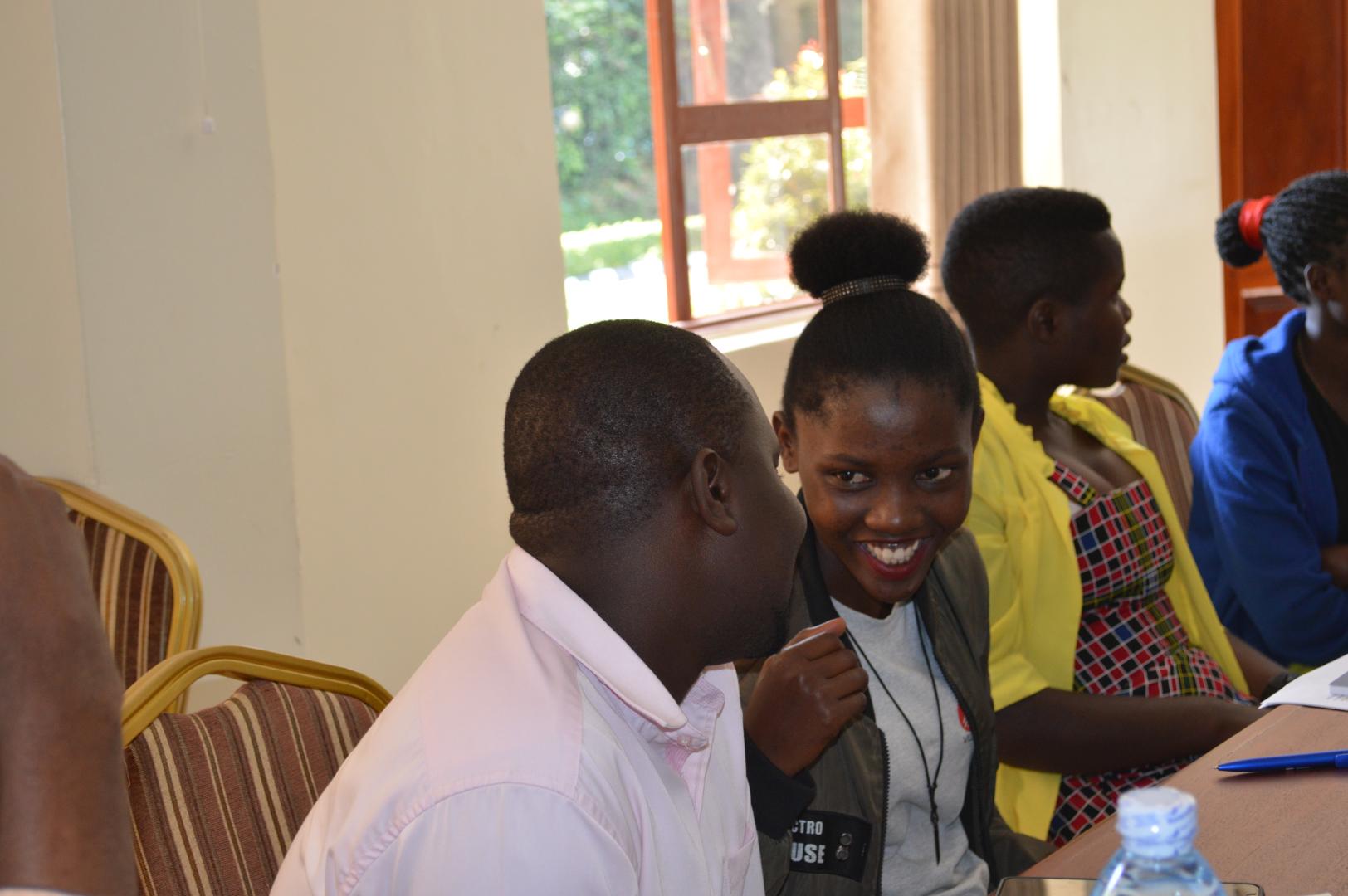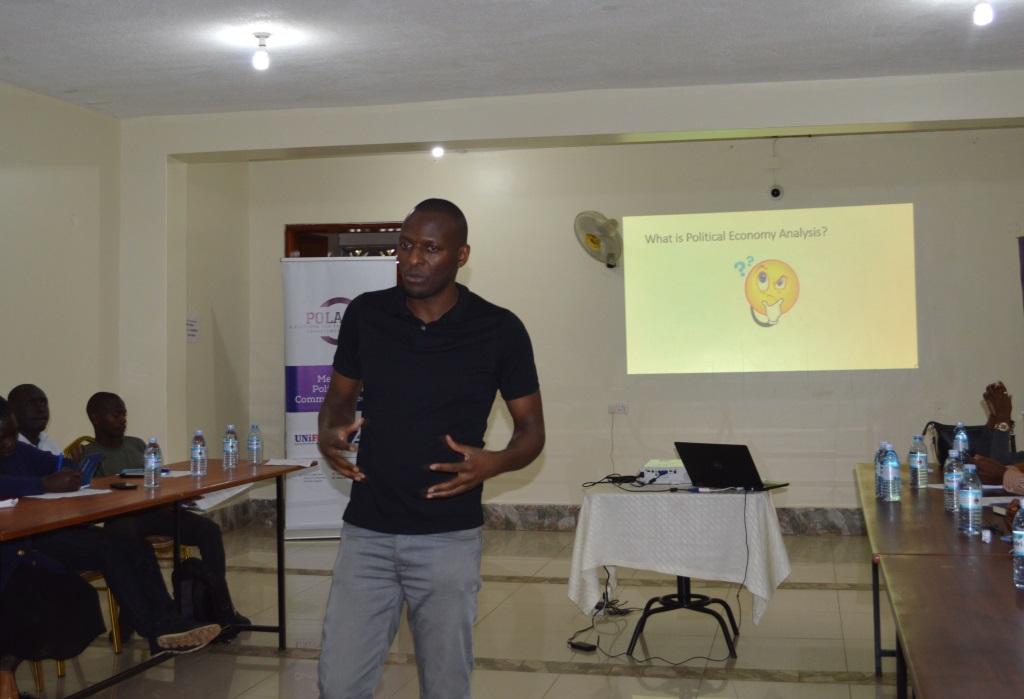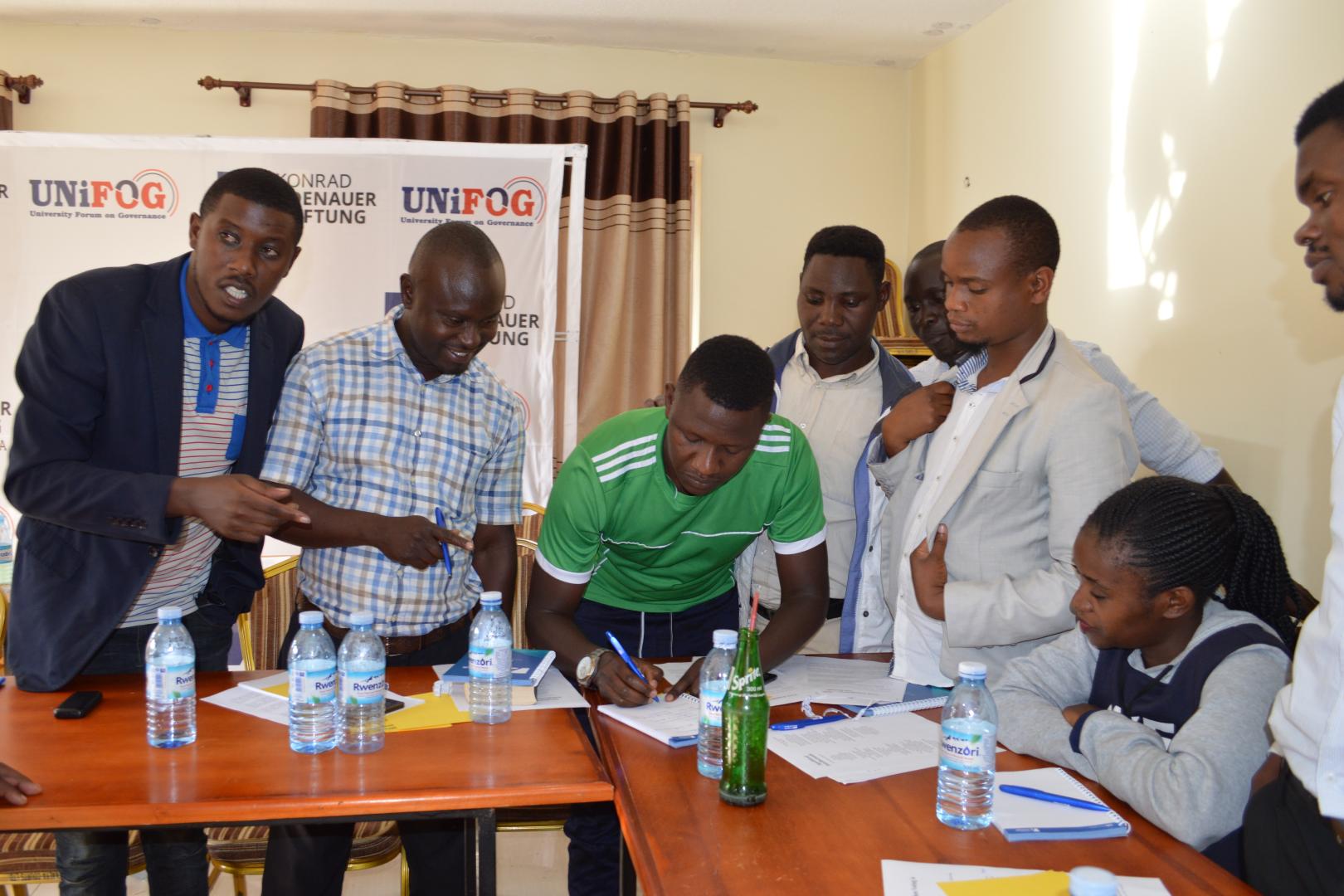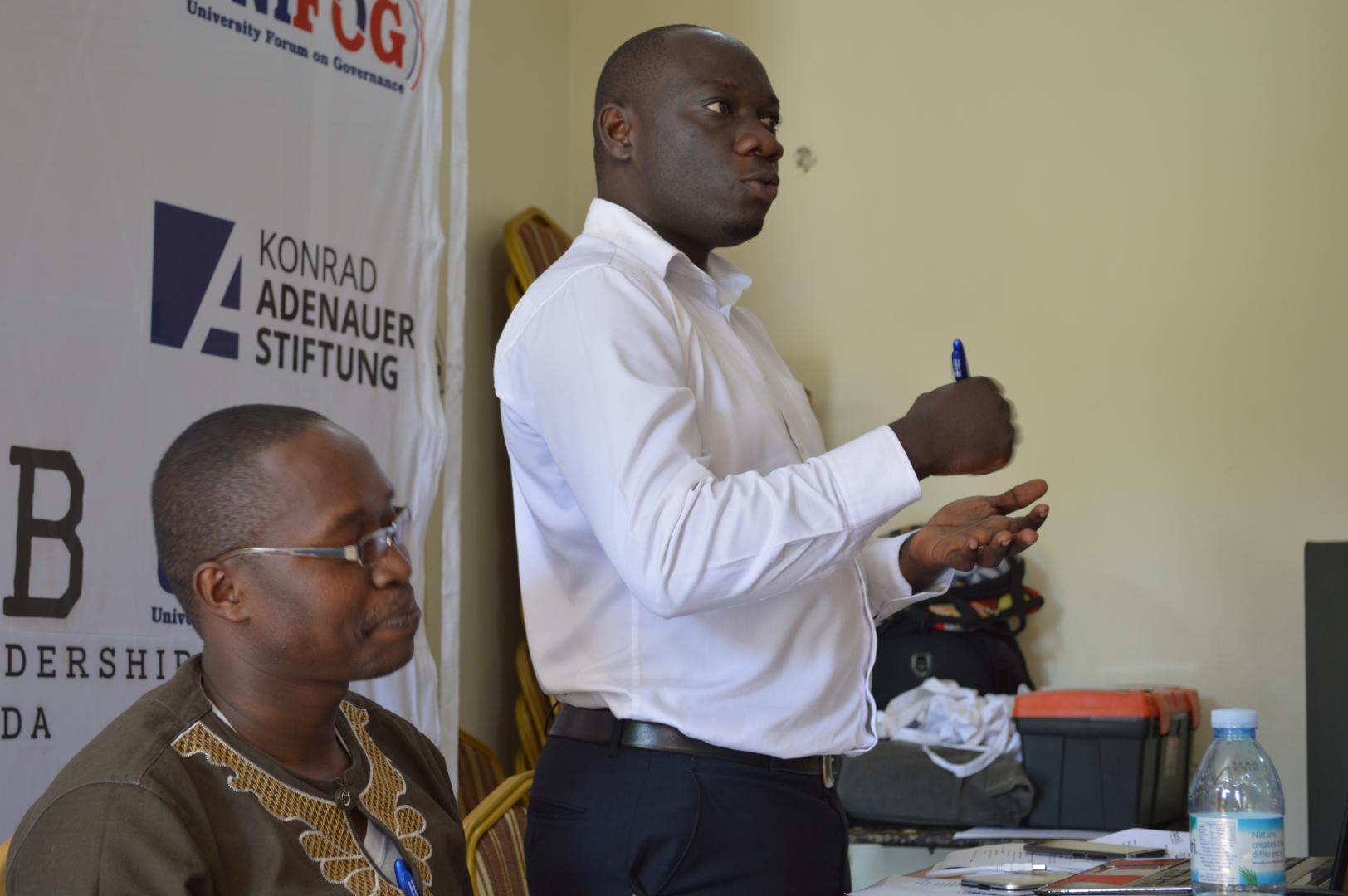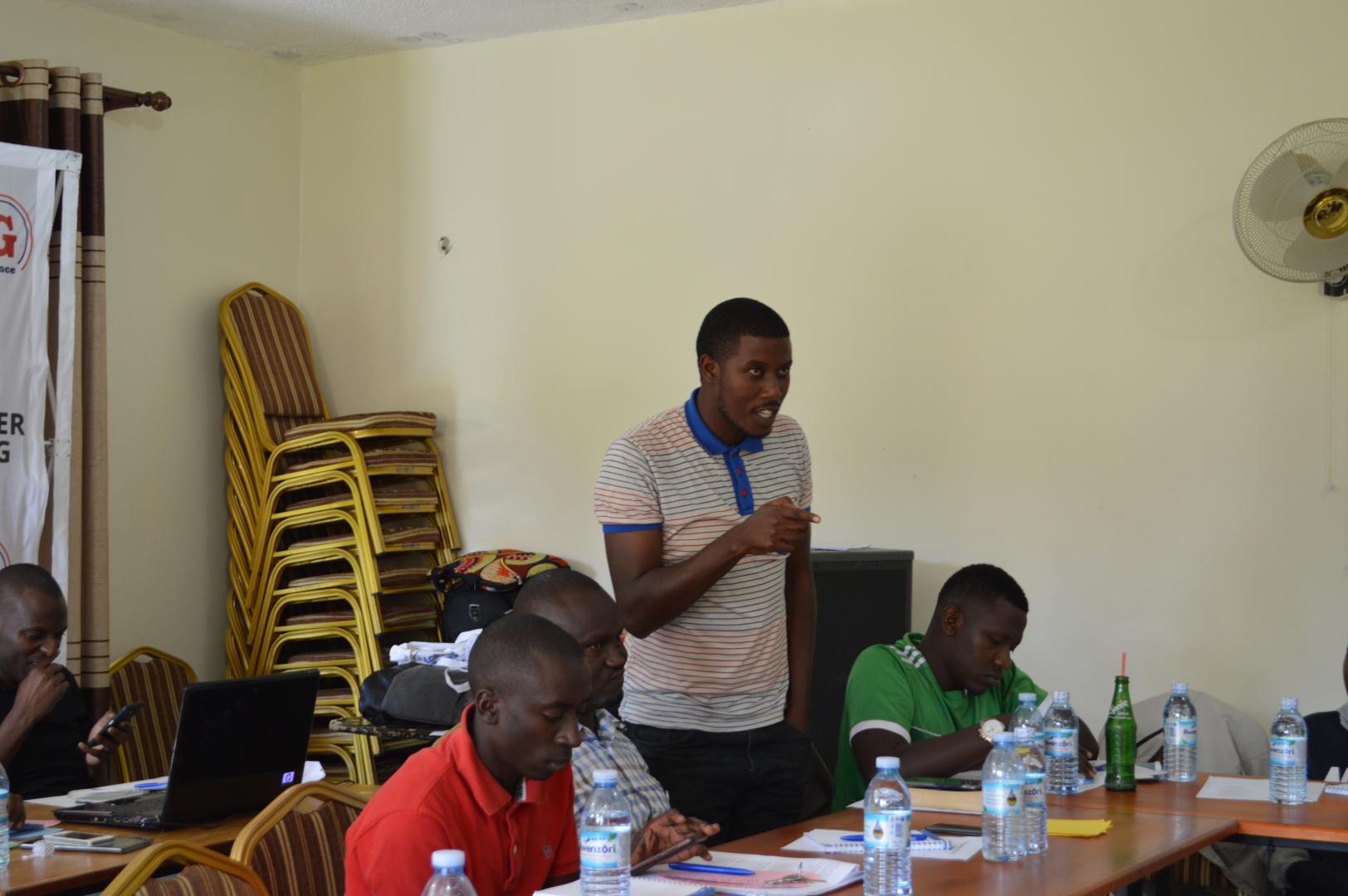“Political Participation Isn’t just about Voting” - Foundation Office Uganda and South Sudan
“For political leaders, it is important to understand the distribution of power and wealth between different groups and individuals and the processes that create, sustain and transform these relationships.” Ayub Kiranda from the University Forum on Governance introduced the participants to political economy analysis which enables the young leaders to understand the relationship between politics and economics and which actors, interests, resources and incentives must be taken into account in a decision-making process. This analysis is the key pillar for understanding how to engage with various stakeholders and how to mobilize them.
Musinguzi Solomon - an agricultural officer in Kabarole District - shared his ideas and experiences about political mobilization and why it matters as a tool for civic engagement. He enabled an open discussion atmosphere to analyses the topic further.
To understand the importance of civil engagement, Sophie Brandt facilitated a discussion based on the text “Civic Engagement – When voting is not enough” by Cameron Cross. This text contains problems of civic engagement and solutions for community development, like the loss of personal spirit to engage and the possibilities of mobilizing other actors who are sitting in a “comfortable chair of handing over responsibilities to someone else”.
In the discussions, the participants realised the importance of civic engagement to hold their leaders accountable and to effectively change their communities. They actively debated about the challenges of civic engagement such as seemingly endless invested time and efforts and how the mobilization of people can take place without money but rather through sharing ideas and empowering local people around common goals.
Advocacy and Lobbying are key instruments for civic and political engagement, “because it leads to the betterment of our communities through empowerment and positive change!" added Donnas Ojok He shared valuable insights into advocacy and lobbying and emphasized the relevance of these tools to address collective action problems. “Advocacy strategies have to be developed on a local level and close to those stakeholders who are affected by the issue”, said Donnas Ojok.
Further, different forms of strategies were introduced and participants got the chance to draw their own advocacy strategy plan on challenges they face in their communities. Therefore the participants experienced the complexity of identifying challenges and how to address them and could apply the newly gathered knowledge.
A discussion on the role of elites in political development was also triggered by the reading of Apolitical Intellectuals, a poem Otto Rene Castillo. During the reflections, participants appreciated that as a privileged section of society, they had more work to do to constructively participate in developing their societies.
All participants who attended the leadership training were greatly enlightened by the knowledge they gained through the various sessions to improve their skills needed for their political leadership careers.
Written by Sophie Brandt




